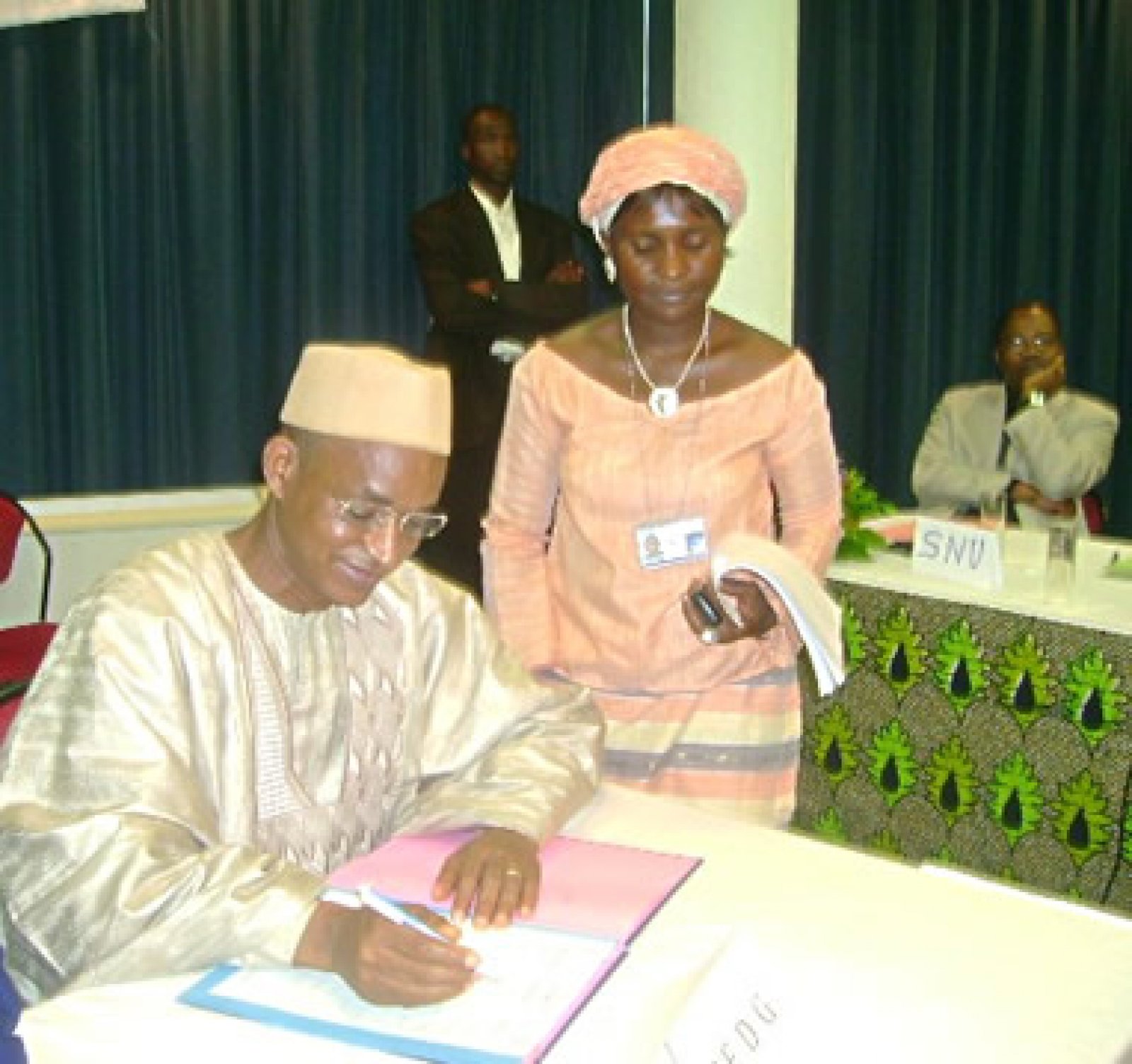
SHARE
Leaders of 41 political parties in Guinea recently signed a code of conduct that sets standards for political party behavior in the lead-up to legislative elections, expected in March 2009. Signatories to the code agreed to promote transparent and peaceful elections with the understanding that violence and intimidation by party members is unacceptable. In addition, the signers agreed to promote women and young leaders on their party’s electoral lists.
Adoption of the code comes at a critical time in Guinea as violence has flared in recent months. Young people in Conakry, the capital, have demonstrated against electricity shortages, high fuel prices and a lack of potable water. Civilians in Mambia and Boké – mining regions east and north of Conakry – have also protested the lack of transparency in the country’s extractive industry, bauxite ore, which is used in the production of aluminum. Despite significant mining royalties, the success of the industry has failed to translate into socio-economic improvement in the region.
NDI’s program in Guinea, funded by the U.S. Agency for International Development (USAID), is working to promote transparent and credible legislative elections through increased participation of political parties, civil society and women. “Given the heightened tensions, the code of conduct signing was a critical step to show the people of Guinea that its political party leaders are serious about peaceful and transparent legislative elections that allow citizen concerns to be debated and addressed democratically,” said Raphael Ouattara ,NDI’s senior resident director in Guinea.
In addition to the governing Party for Unity and Progress (PUP), signatories to the code included leaders of five major opposition parties: Rally for the Guinean People (RPG), Union of Democratic Forces of Guinea (UFDG), Union of Republican Forces (UFR), Union for Progress of Guinea (UPG) and Union for Progress and Renewal (UPR).
Nearly 200 people attended the Nov. 21 signing ceremony in Conakry, including government and election commission leaders, representatives from civil society organizations and international nongovernmental organization as well as members of the media. Following the signing, Prime Minister Ahmed Tidiane Souaré said, “This meeting will enter into the history of political life in Guinea.”
NDI began working with Guinean party leaders in August to develop the code. In September, NDI convened a workshop to finalize a draft code of conduct; 65 members from 37 political parties participated. At the close of the workshop, 86.9 percent of participants affirmed their belief that the code of conduct would contribute to peaceful legislative elections.
NDI has also assisted in the creation of a committee to monitor parties’ implementation of the code’s principles. The committee will include members of all political parties that are signatories.
Pictured above: 41 Guinean political party leaders signed the code of conduct on Nov. 21.
–
Published on Nov. 26, 2008


